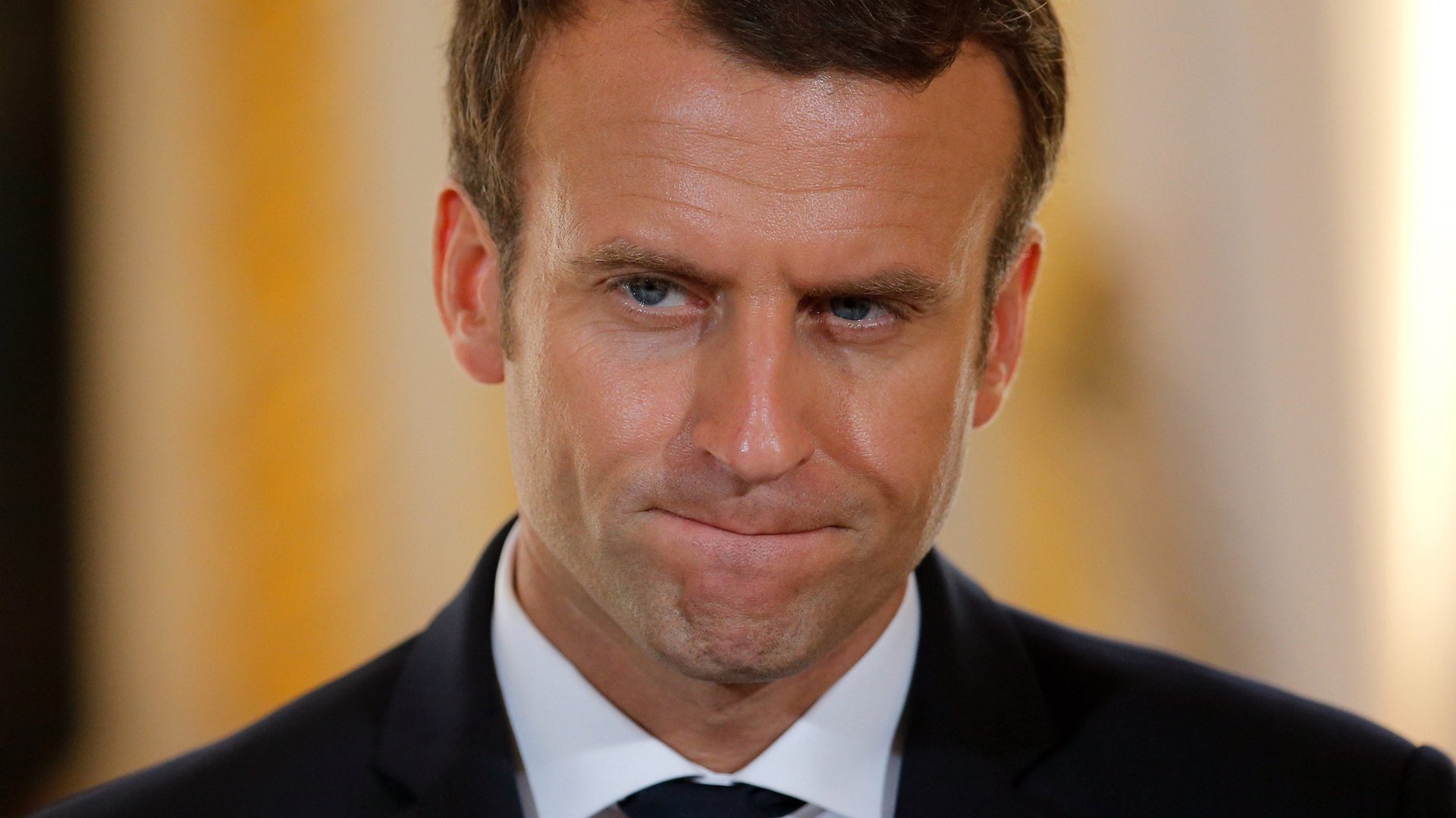Emmanuel Macron’s global popularity is not holding up in France
Emmanuel Macron is adored across the world, but the golden boy of global politics is struggling to replicate his international popularity at home.


Emmanuel Macron is adored across the world, but the golden boy of global politics is struggling to replicate his international popularity at home.
Macron’s approval rating has dropped by 10 percentage points in one month, according to recent polling by Ifop. It marked the biggest drop in popularity for a newly-elected French president since 1995 (former French president Jacques Chirac saw a 15-point drop in July 1995). Macron’s approval rating now stands at 54%, which is two percentage points lower than that of his diminished predecessor, François Hollande, in July 2012.
Not surprisingly, the pro-market reformist is proving particularly unpopular with public sector workers. His favorability among that group decreased by 18 percentage points in one month, from an approval rating of 62% in June to 44 % in July. Macron’s proposed public sector pay freeze (paywall) and cuts to the public sector wage bill are likely to blame.
Government cuts have also put him at odds with France’s armed forces. Pierre de Villiers, head of the country’s armed forces, resigned last week (paywall) in protest against Macron’s nearly $1 billion defense budget cut for 2017.
The only place Macron seems to be gaining is with the very young. His popularity rose by one percentage point among 18- to 24-year-olds. Among 25- to 34-year-olds, his popularity decreased only slightly. Thanks in part to Macron’s plans to increase the social contribution tax, his approval rating fared worse with older voters, dropping from from 64% in June to 50% in July among 50- to 64-years-olds and slightly less for those over 65. The tax is expected to hit older people particularly hard (link in French).
And yet, Macron is still one of Europe’s popular politicians, where voters are far more concerned about Britain’s Theresa May, US president Donald Trump, and Russia’s Vladimir Putin. According to a recent YouGov poll, May is even more unpopular than Putin in Germany. Macron may have it easy compared to his European counterparts, but not on his home turf.